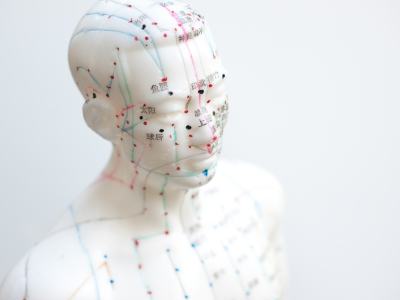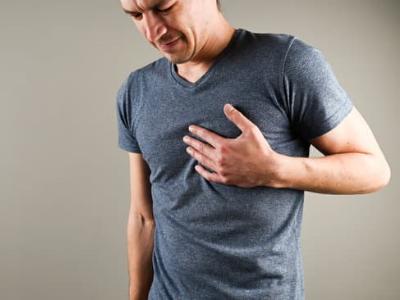Why are we so passionate about mental health at Raja Wellness?
The link between mental health and cardiovascular health is quite significant. Stress, especially chronic psychological stress, has a profound impact on the cardiovascular system. When the “stress response” is activated, the body secretes glucocorticoids, epinephrine, and other hormones, while inhibiting the secretion of growth hormone, insulin, and reproductive hormones. The sympathetic nervous system is also activated, leading to increased heart rate and blood pressure, among other physiological changes that divert blood to areas needed for immediate survival, such as the muscles and lungs, and away from non-essential areas like the gut and reproductive organs. This response is adaptive in the short term, but chronic activation due to chronic stress can lead to serious cardiovascular issues such as hypertension, atherosclerosis, and myocardial ischemia.
This connection between mental health and cardiovascular health highlights the intricate intertwining of psychological and physiological factors. The body's response to chronic stress can have detrimental effects on the cardiovascular system, emphasizing the importance of managing and addressing mental health to promote overall well-being, including cardiovascular health.

Acupuncture has many benefits for cardiovascular health:
1. Stress Reduction: Stress is a known risk factor for cardiovascular diseases. Acupuncture has been shown to modulate the body's stress response, potentially reducing the impact of stress on the heart and blood vessels.
2. Blood Pressure Regulation: Studies indicate that acupuncture may help in regulating blood pressure. By targeting specific acupuncture points, practitioners aim to optimize blood circulation and blood pressure levels, contributing to better cardiovascular function.
3. Inflammation Management: Chronic inflammation is closely linked to cardiovascular conditions. Acupuncture may exert anti-inflammatory effects, potentially reducing the systemic inflammation associated with heart disease.
4. Enhanced Circulation: The stimulation of acupuncture points is believed to enhance microcirculation, improving blood flow to vital organs including the heart. Enhanced circulation can promote heart health and overall cardiovascular function.
5. Complementary Therapy: Acupuncture is often used as a complementary therapy alongside conventional medical treatments for cardiovascular issues. It may help alleviate symptoms, improve overall well-being, and enhance the effects of standard cardiovascular care.
While acupuncture has clear benefits for cardiovascular health, we recommend individuals consult healthcare professionals before integrating acupuncture into their treatment regimen. Moreover, acupuncture alone may not be enough for people dealing with chronic stress.
Learning to manage our stress is a key part of maintaining heart health—and that’s where professional mental health care is so important as part of your overall wellness.
Herbal formulas also play an important role in heart health. Many formulas have been shown to reduce cholesterol and blood lipid levels, decrease inflammation, and increase peripheral circulation. For example, Clear Mind Formula is one of my favorite herbal formulas for heart health, especially here in Kentucky because of its natural antifungal and antimicrobial properties. This is a raw herbal concoction that we make in-house. We do recommend consulting with a trained herbalist before incorporating any herbal remedies into your care plan.
or
For more information, please don’t hesitate to call us at 270-506-3853 today!
References:
1. Wayne PM, Kaptchuk TJ. Challenges inherent to t'ai chi research: part II-defining the intervention and optimal study design. Journal of Alternative and Complementary Medicine. 2008;14(2):191-197.
2. Fu, C., Zhao, N., & Liu, Z. (2013). Chronic pain: acupuncture and related therapies. Springer Science & Business Media
3. Chen J, Ye C, Yang Z, Zhang C, Li P, Xu B, Wu A, Zhang X, Xue X. Erchen decoction to reduce oxidative stress in dyslipidemia phlegm-dampness retention syndrome mice: In vivo mechanism revealed by metabolomics (liquid chromatography-mass spectrometry). Phytomedicine. 2023 Jul;115:154808. doi: 10.1016/j.phymed.2023.154808.
In honor of Father’s Day, I wanted to take this opportunity to highlight how acupuncture and TCM helps men’s health; and to remind men that they need to take care of themselves too. Statistically men are less likely than women to seek health care and married men tend to see the doctor more often than single men, but still less often than women (even accounting for pregnancy needs). One of the biggest complaints I hear from male patients is they are too busy or they don’t want to walk out with another pill to take.
I started this with a search of “top reasons men go to the doctor” and could only find research and articles on why men should go to the doctor—it seems we haven’t really looked at why they do go when they do in much detail. I did find this gem from The Cleveland Clinic and their support of the MENtion It Campaign—an initiative to encourage men to seek care. Despite the fact that the majority of men want better health to care for their families, less than half of those who listed that as a priorit, seek regular care.
The top reasons why? They don’t want to know they have to make a lifestyle change, or fear of finding out what they have. We get it—but there are better options than neglecting your health. And if you don’t want to take a pill when things are going wrong, yes, you will need to make a change. But aren’t you and your family worth it? So if you have an issue—MENtion It! We are here to listen.
One advantage acupuncture has over other options is we treat the whole body during a session—you may be coming in for back pain or knee pain, but we will also be addressing sleep, digestion, immune function, endocrine balance and more. If you think about it, it is truly a great value! Similarly, our approach using herbal formulas is to select a formula that addresses as many issues at once as possible—so you can take one thing and have multiple issues get better. And unlike just treating a symptom, when we are able to get to the root of the problem, and as a result, you feel better and stay that way even without being on herbs all the time.

Menopause gets a lot of notice, but did you know men go through a similar process called Andropause? First written about in 1946, a landmark paper in JAMA entitled, “The Male Climacteric” characterized it with nervousness, reduced potency, decreased libido, irritability, fatigue, depression, memory problems, sleep disturbances, and hot flushes. Hypogonadism is broad scientific term and it refers to a “clinical syndrome caused by androgen deficiency, which may adversely affect multiple organ functions and quality of life.”1 Decreasing testosterone levels are linked to a number of disease processes and shorter life-span. The traditional approach is supplemental testosterone, but acupuncture and traditional East Asian herbal medicine have also been shown to regulate testosterone levels in the body, improve mood, sleep, endocrine function and cardiovascular health.
Speaking of hearth heath—statistically 1 in 4 men will die of heart disease and it’s complications. Men tend to develop heart disease earlier in life than women and are less likely to make the lifestyle changes necessary to reverse heart disease. Coronary artery disease is one of the most common forms of heart disease among men and responds incredibly well to lifestyle and diet changes. Tons of this research can be found here.
JAMA: Intensive Lifestyle Changes for Reversal of Coronary Heart Disease
If you made it this far into the article, congratulations! As a thank you for being loyal reader, use the code “mentionit” for 10% off you next order from our website. Discount code valid 6/15/23 - 7/15/23. Not valid with other offers, not valid for gift cards. Other restrictions may apply.
Did you know half of men who have heart attacks have no symptoms before it happens? Or perhaps, didn’t know they were having symptoms. One of the earliest signs of heart disease is erectile dysfunction. Another early sign of heart disease is new onset anxiety2. Mental health issues and heart disease are often tangled together and in many cases of anxiety being caused by low grade (not yet detectable) heart disease, the typical anxiety medications don’t work well. Acupuncture is very effective for both mental health and cardiovascular health—and as we mentioned above, can address both issues in the same sessions!

Last, but not least is prostate health. Benign Prostate Hyperplasia responds very well to acupuncture and herbal therapies3. Acupuncture can increase urinary output, reduce the size of the prostate, and beyond hyperplasia is effective for treating Prostatitis as well.
Harvard Study on Acupuncture Relieving Prostatitis Symptoms
These results tend to be long-lasting after the initial course of treatment. Prostatitis alone is responsible for over 2 million doctors visits a year, and is often recurring and has no clear cause. So even if we can’t convince you to see your doctor once a year (yet), schedule an appointment with one of our acupuncturists, check out our online resources, and remember—Dads are an important part of the family and it’s important they get the care they need so they can take care of others!
1 Singh P. Andropause: Current concepts. Indian J Endocrinol Metab. 2013 Dec;17(Suppl 3):S621-9. doi: 10.4103/2230-8210.123552. PMID: 24910824; PMCID: PMC4046605.
2 Celano CM, Daunis DJ, Lokko HN, Campbell KA, Huffman JC. Anxiety Disorders and Cardiovascular Disease. Curr Psychiatry Rep. 2016 Nov;18(11):101. doi: 10.1007/s11920-016-0739-5. PMID: 27671918; PMCID: PMC5149447.
3 Zhang W, Ma L, Bauer BA, Liu Z, Lu Y. Acupuncture for benign prostatic hyperplasia: A systematic review and meta-analysis. PLoS One. 2017 Apr 4;12(4):e0174586. doi: 10.1371/journal.pone.0174586. PMID: 28376120; PMCID: PMC5380320.
When it comes to the heart and the question of “Can Acupuncture really help with that?” the answer is a resounding yes! From angina to issues of rhythm and blood flow, there is ample research to show acupuncture helps with no documented adverse effects during study periods—even with severe heart diseases.
Acupuncture as an adjunctive therapy improves treatment outcomes and pain relief for patients with Coronary Artery Disease (CAD) related angina. We’ve seen this repeatedly in our clinic as well.
Atrial Fibrillation (Afib): 1x weekly acupuncture for 12 weeks showed improved structural remodeling of the heart in patients with afib. This was fascinating to me, as I knew regular acupuncture of 2-4x per month extended the time between problems my afib patients had by 50-70% over what they experienced before acupuncture; but to learn it helped positively remodel the structure of the heart?!?! That’s huge!
Acupuncture has consistently been shown to increase blood flow and exercise tolerance in patients with chronic heart failure. This reduces stress, helps maintain a healthy weight and immune function, and improves patient quality of life without negative side effects!!
There are some well-understood mechanisms at play here such as the ability of acupuncture to regulate the balance of the sympathetic nervous system and vagus nerve, to help increase peripheral circulation, and to improve patient well-being; but to see that acupuncture is positively changing cell-signaling and structure of the heart itself shows there is much more than just a placebo effect going on. So yes, acupuncture helps. We even have some incredible herbs available to support and enhance treatments.
The bad news: Acupuncture isn’t a miracle cure (nothing alone is!). I probably sound like a broken record to some of my patients at this point, but for all the wonderful things we can do with acupuncture, herbs, and FSM to help with heart health—the choices you make at home each day about what foods you eat (or don’t eat) and what you do for stress management are critical to successfully managing and possibly even reversing heart disease. If you are taking blood pressure meds, cholesterol meds, or diabetes medicines, you aren’t healthy—you are masking an underlying disease process that will negatively impact your quality of life (if not the quantity of it as well). All the acupuncture in the world can’t overcome bad food choices. So to encourage heart health, we are including an eating guide to help you as well as resources for more help if you need it! And while you fix your diet, let acupuncture help you along the way!
1 https://www.ncbi.nlm.nih.gov/pmc/articles/PMC8778603/
2 Kristen AV, Schuhmacher B, Strych K, Lossnitzer D, Friederich HC, Hilbel T, Haass M, Katus HA, Schneider A, Streitberger KM, Backs J. Acupuncture improves exercise tolerance of patients with heart failure: a placebo-controlled pilot study. Heart. 2010 Sep;96(17):1396-400. doi: 10.1136/hrt.2009.187930. Epub 2010 Jun 15. PMID: 20554511.
3 Middlekauff HR, Hui K, Yu JL, Hamilton MA, Fonarow GC, Moriguchi J, Maclellan WR, Hage A. Acupuncture inhibits sympathetic activation during mental stress in advanced heart failure patients. J Card Fail. 2002 Dec;8(6):399-406. doi: 10.1054/jcaf.2002.129656. PMID: 12528093
Heart disease is a leading cause of death in the US; more than 800,000 people die of heart attacks alone each year. 1 in 3 deaths in the US are linked to heart disease in most statistical data reviewed. This vital organ is often neglected or inadvertently stressed with poor diet and lifestyle habits. Strokes, heart failure, and many other cardiovascular-related issues are all attributed to poor heart health. Worse yet, it is misunderstood as “only” a pump—when it has other key functions in our body.
Most everyone has heard: reducing cholesterol to healthy levels and maintaining healthy blood pressure are keys to good heart health. Less discussed is the role of Heart Rate Variability (HRV), the variation in time between each heartbeat, as a measure of health. Higher HRV is associated with decreased risks of heart attack, stroke and diabetes. And low cholesterol and blood pressure alone are not enough to maintain a healthy HRV because HRV is largely regulated by the balance of the autonomic nervous system. HRV used to only be measurable with an EKG; but many of today’s wearable fitness devices are accurate enough to give a reasonable estimate of HRV, especially those that have the ability to add data from a Holter monitor or finger sensor.

Yoga and tai chi have a long history of improving health and research is clear that both can directly improve HRV and coherence with consistent practice. Consistent quality sleep, limiting alcohol consumption, regular exercise, drinking adequate water, and focusing on eating real, fresh food with an emphasis on vegetables and healthy fats, also help protect heart health.

How else can you help maintain health HRV? Well, acupuncture has consistently been shown to improve HRV even when the focus of the treatment is on other complaints. When it is focused on regulating nervous system balance and heart function, it’s even more effective. Frequency Specific PEMF has also shown to regulate the autonomic nervous system and therefore HRV. Another great way to improve HRV through enhanced coherence is our equine programs. Just simply being in physical proximity to a horse has been shown to increase coherence and HRV. Add to that the benefits of the meditation and tai chi that we teach with the equine exercises, and you have tools to take home with you to continue to improve your heart health and well-being.
If you want to learn more about heart health I recommend the HeartMath Institute. They are a leading researcher in heart health and generous with their free products to support public health. They offer a number of free classes and publications to help people learn practices to improve their HRV and even have tools for sale to help them measure their progress. This link here is one of my favorite, 10 HeartMath Practices | HeartMath Institute.